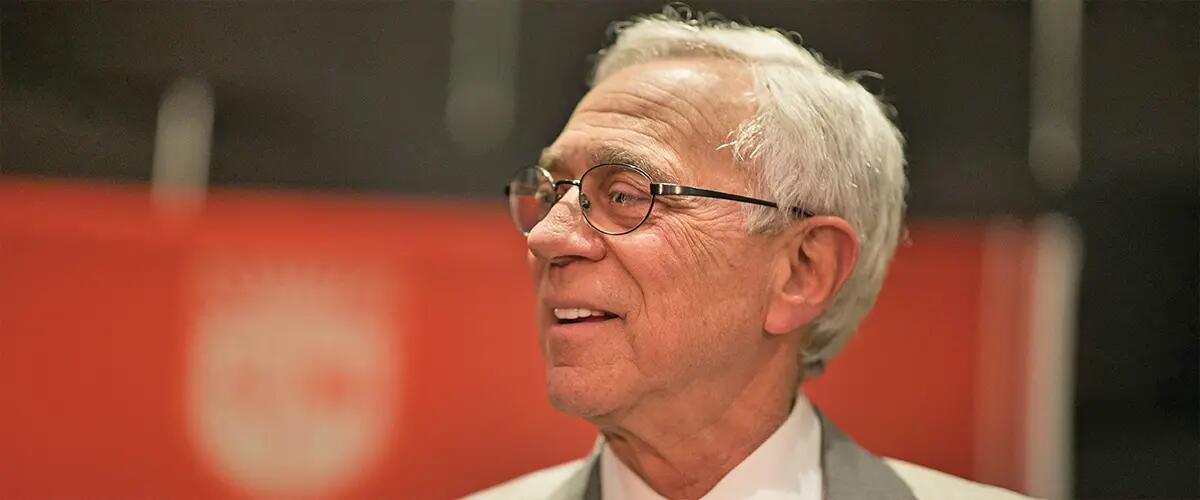
Photography reprinted courtesy of Rutgers Magazine, 2018.
Breakthrough Interview with Jack Jacobs, Rutgers ROTC Alum
In honor of Veterans Day, our first interview features a Rutgers ROTC Alumni and member of our Rutgers Business School Military and Veterans Board of Advisors. Jack Jacobs retired from the Army as a full Colonel in 1987, after more than twenty years of service. Today, he is widely regarded as one of the world’s most knowledgeable—and outspoken—military analysts. His career has bridged the disparate worlds of the military, business and academia. Jacobs is the Co-Chairman of the Congressional Medal of Honor Foundation and has co-authored a book on the nature and necessity of sacrifice titled “If Not Now, When?” He holds the McDermott Chair of Humanities and Public Affairs at the US Military Academy and currently serves as a military analyst for NBC News and MNSBC commenting on defense issues, terrorism, and international affairs.
Jackie Scott, Global Program Director: What's your personal definition of a breakthrough?
Colonel Jack Jacobs:Well, I think it's something that rewrites the rules of a large portion of the human experience.
Wow. Who is a breakthrough thinker you admire and why?
There are a lot of them. There are many people who have made major contributions either on purpose or unwittingly, to the way we live now, some for good and some for ill. I think that they came to a breakthrough idea often by accident. Many strove to come up with something significant and then discovered it by accident anyway, but that's because they're lateral thinkers. If you think about things long enough, you eventually come up with something.
You can point to lots of people who, perhaps accidentally, changed the way a large portion of the world lives. Einstein is a great example. I mean, he labored strenuously on the subject of what eventually became relativity, but he actually came by the notion by accident. Indeed, I think the best explanation of relativity is from a book that Einstein wrote himself that talks about standing in the end car of the trolley in Zurich and looking at the clock tower as the trolley sped away from the clock tower. He just asked himself the question, “What would happen if this trolley went so fast that we would be going the same speed as the photons of light that were bouncing off the clock tower?” He said it was the simplest thing in the world to figure out, and yet it had eluded him for a long, long time.
I believe a lot of discoveries are a lot like that. Penicillin is another example. And smallpox vaccine. You're looking for it, but it's also in plain sight. I think it takes somebody who's a lateral thinker to not only to discover something he's been seeking for a long time, but also to recognize that he's actually discovered it.
What company or brand do you admire for breaking though?
A company? I'm old enough to be a cynic and I'm also a pragmatist, and so I recognize the notion that if you're not making money you're out of business and therefore you can't do anything. You can't do something good unless you've done well too. That is kind of a cynical view, but today people have a very low opinion of companies precisely because they strive to do well and a lot of people erroneously find this reprehensible.
So if we pick a pharmaceutical company, for example, that has invented something that really works well, a drug, there'll be other people who complain that they charge too much for it. It's very easy to become contentious in this sphere. It's probably best to say that the notion of pure science, or pure art, is the most admirable thing because you're not necessarily looking to get anything out of it. Anything positive that comes from it is a bonus.
This next question is just for fun…if we were to make a movie about you, who do you think we should we cast to play Jack Jacobs?
Well, it's likely to be somebody short and irritating. Danny DeVito comes immediately to mind. It would have be someone short, aging, obnoxious and really annoying...maybe Joe Pesci.
Danny DeVito! Joe Pesci? Seriously? (laughing). I see your character portrayed by a Paul Newman type.
Paul Newman? Well he’s passed on, and I certainly don’t want him playing me. Anyway, I was never THAT good looking even when I was somewhat good looking (laughing).
This has been so much fun! Thank you for speaking with me today and thank you for your service. In closing do you have any other thoughts or insights to share regarding personal or professional “breakthroughs”?
I'd be interested to see the outcome of this interview series. You may know “Miles’s Law” which states that "where you stand depends on where you sit." So, when you ask people to talk about breakthroughs, my guess is they are going to be focused on the things they know. I think you need to be expansive in your search for knowledge, and I believe that the most successful people, the ones who actually engineered breakthroughs, themselves were renaissance people. Even a guy like Tesla, who focused exclusively on the pure science of electricity, was something of a renaissance man.
You must be naïve enough to be surprised and shocked when something comes across that's new, but educated enough to understand it when you do see it.
Press: For all media inquiries see our Media Kit


